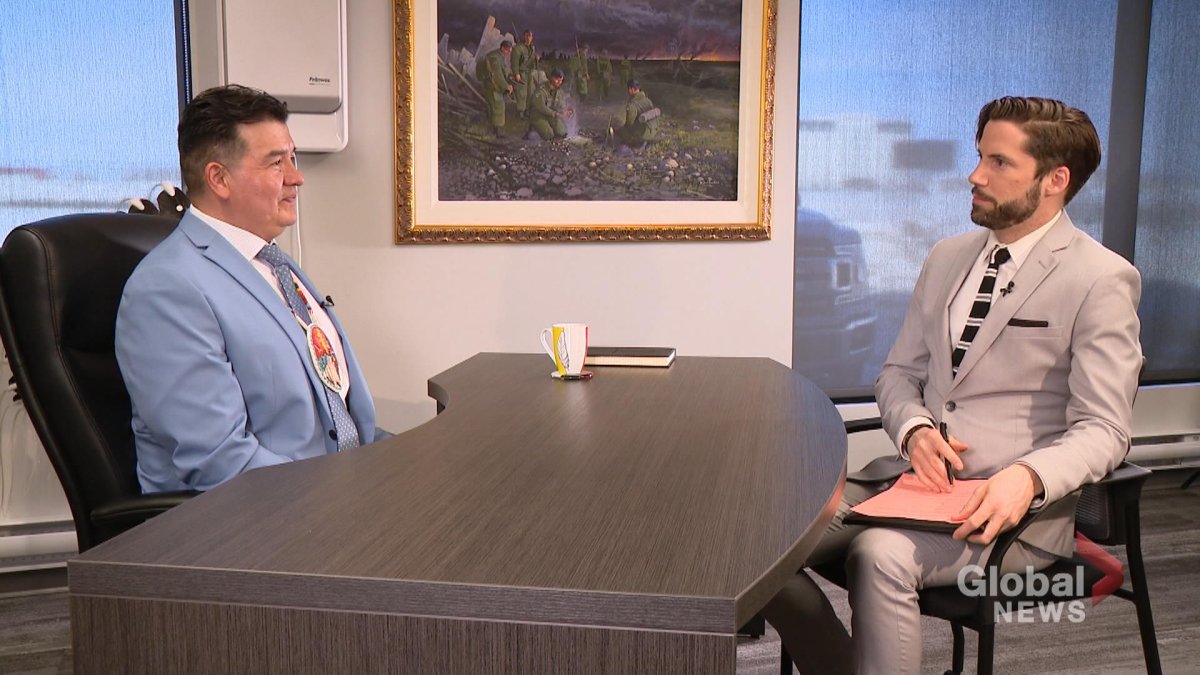FSIN chief doubles down on blockades after Saskatchewan First Act passes final reading
The Saskatchewan First Act, also known as Bill 88 has been met with controversy in the province, especially with First Nation communities.

The Federation of Sovereign Indigenous Nations (FSIN) Chief Bobby Cameron has been a vocal leader against the act since its announcement last fall.
The FSIN said it would take action, including blockades, to oppose the Act as they feel it infringes on inherent treaty rights.
Focus Saskatchewan’s Nathaniel Dove sat down with Cameron in an exclusive interview to discuss the Act, after it passed its third and final reading in the Saskatchewan legislature on March 16.
Q: The Saskatchewan First Act is progressing. I want to get your reaction to the latest developments on it.
A: “Well, first and foremost, we definitely oppose it. They’ve made comments that it doesn’t infringe on treaty, but yes, it does. Scott Moe and your MLAs, yes, it does. You can stop saying that because our knowledge-keepers, our people out on the land know it. They see this. They tell us.”
Q: What is the state of treaty rights and their protection in this province?
A: “I want to start off by saying the provincial government was formed in 1905. That’s when this became the province of Saskatchewan. Treaties were signed and negotiated in the 1800s, long before the Saskatchewan province was formed. We are of international law. We didn’t sign treaty with provincial government. We didn’t sign treaty with federal government. It was with the British Crown.”
“And in there, it clearly states your way of life will continue on these lands and waters. And that’s all of these lands and waters as far as we’re concerned. These Crown land sales that they’re auctioning off online are illegal. They breached the Natural Resources Transfer Agreement. And right now, we have launched legal action and we’re taking them to task. And they’re going to lose. That’s how confident we are. That’s how powerful our sacred treaties are.”
Q: Calling the treaty sacred, with respect, I think only your side sees them as sacred. If the Saskatchewan government is violating them, they’re obviously not sacred. How do you make them respect those rights?
A: “We have many First Nations who have reached out and are ready to protect their lands and waters. If that means blockades, if that means other avenues, then you know, so be it. They’re doing what’s right by their First Nations communities. They’re doing what’s right and what they feel is proper and ensuring our lands and waters are protected so future generations can and will enjoy our lands and waters.”
Q: What can you tell me about the plans for blockades?
A: “We’re going to be communicating with the First Nations and there will be a coordinated effort to get their input, their direction, in order to advance their initiatives. We all live in this province that you call Saskatchewan – we call it on our treaty traditional territories – and that’s what this is about.”
“And to have exclusion of a certain group, which are First Nations, it’s not going to work. It’s just not going to happen. We’re going to remain vocal and we’ll exhaust all avenues, technically, politically and legally. And in the end, if we have to, our people are ready. Our people are ready to protect their lands and waters like they did in the Oka crisis in the ’90s.”
Questions and answers have been shortened for clarity.


No comments:
Post a Comment